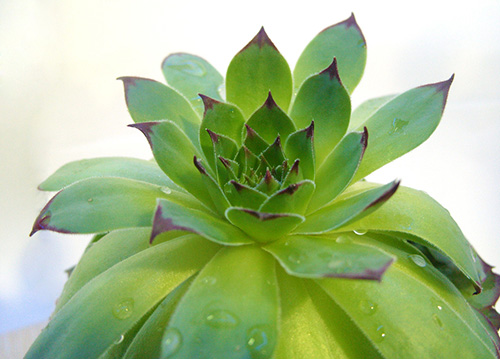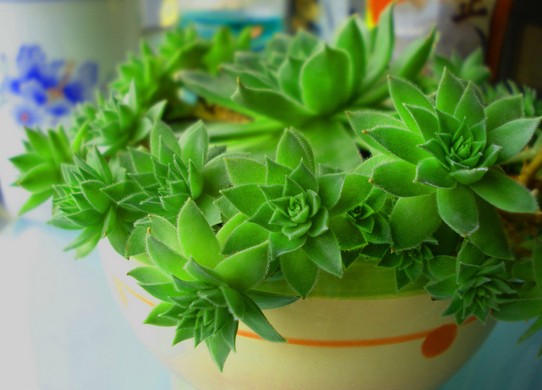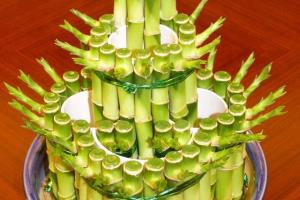The Culture method of Guanyinlian what should be paid attention to in culturing Guanyinlian
Keeping a few green plants at home can bring some fun to family life. Guanyinlian is a good choice. Guanyinlian, also known as black-leaf taro and black-leaf Guanyinlian, is a foliage plant of the genus Amorphophallus in Araceae. It is a perennial herb with fleshy tubers in the underground part, and is easy to tiller to form tufted plants. The leaves are arrow-shaped, the flowers are Buddha-flame inflorescences, and they are drawn from the end of the stem and enjoy a warm, moist, semi-shady growth environment. There are two kinds of plants used to be called Guanyinlian, one is Amorphophallus of Araceae, also known as tortoise-shell taro, black-leaf taro, black-leaf Guanyinlian. The other is Guanyinlian, a succulent plant of the genus crassulaceae. There is an obvious difference between the two. This article introduces the breeding method of the latter for you.

The soil of potted Guanyinlian requires loose, good drainage and ventilation, and is rich in humus. The same mixture of garden soil, rotten leaf soil and river sand can be used as matrix.
Fertilization should be determined according to the growth of flowers and plants, fertilizer should be applied thinly, and the proportion of phosphorus and potassium fertilizer should be increased appropriately to make the stem firm, robust and tuber substantial.
April to October every year is the growing period of Guanyinlian. During this period, it is required that the soil is moist and the air humidity is high, and sufficient moisture should be given. Especially in the midsummer season, the amount of water evaporation is large, so it is necessary to spray to the leaf surface frequently to maintain humidity. However, as long as the basin soil is kept moist, waterlogging or long-term wetness will cause underground stem rotting.

After autumn, the temperature will stop growing when the temperature is below 15 ℃, and the aboveground parts will wither gradually. At this time, we should try our best to reduce watering, just keep the pot soil slightly wet, and place the flowerpot in a windless, warm and dry place to make it safe to survive the winter.
How to read the introduction of this article, did it stimulate your interest in breeding Guanyinlian?
- Prev

What should be paid attention to in the culture method of Fugui bamboo
What should be paid attention to in the culture method of Fugui bamboo
- Next

Can green pineapple be put in the bedroom? the breeding methods and matters needing attention of green pineapple
Can green pineapple be put in the bedroom? the breeding methods and matters needing attention of green pineapple
Related
- Wuhan Hospital Iron Tree Blooming Result Was Instantly Frightened by the Gardener Master
- Which variety of camellia is the most fragrant and best? Which one do you like best?
- What is the small blue coat, the breeding methods and matters needing attention of the succulent plant
- Dormancy time and maintenance management of succulent plants during dormancy
- Minas succulent how to raise, Minas succulent plant pictures
- What are the varieties of winter succulent plants
- How to raise succulent plants in twelve rolls? let's take a look at some experience of breeding twelve rolls.
- Attention should be paid to water control for succulent plants during dormant period (winter and summer)
- Watering experience of twelve rolls of succulent plants
- Techniques for fertilizing succulent plants. An article will let you know how to fertilize succulent plants.

